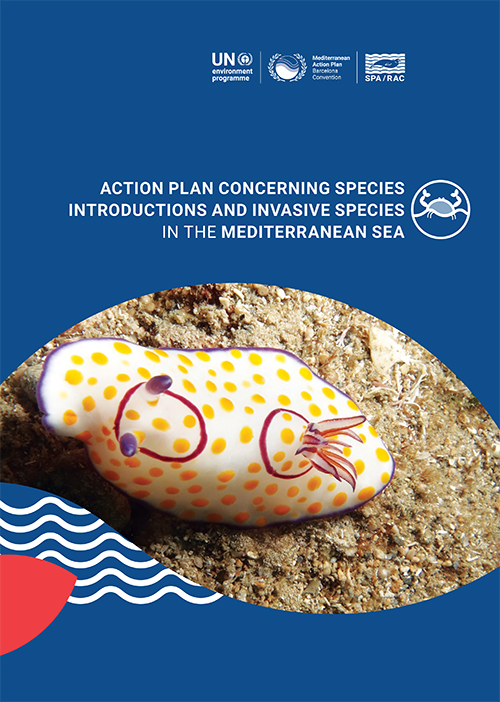Search
Non-indigenous species
The problems resulting from the intentional or accidental introduction of non-indigenous or genetically modified species are thought to be among the most important threats to biological diversity. The plan for implementation of the World Summit on Sustainable Development discussed at Johannesburg World Summit asks for national, regional and international efforts to be stepped up to check invasive non-native species and encourage the development, at every level, of efficacious work programmes on invasive species.
For the Mediterranean, the introduction of marine non-native species is a phenomenon that has long been known and studied. But it has recently grown, and certain of these species have proved invasive.
Taking into account the above-mentioned considerations, the Fifth Meeting of the National Focal Points for SPAs (Valencia, April 2000) recommended that a Mediterranean Action Plan to strengthen the Mediterranean countries’ capacities as regards preventing and controlling the introduction of species into the Mediterranean Sea, and coordinating their efforts on the subject, be elaborated.
On the basis of the recommendation made by the Fifth Meeting of National Focal Points for SPAs, the Contracting Parties to the Barcelona Convention requested RAC/SPA to work on elaborating an action plan to check the introduction into the Mediterranean of species and marine non-native species.
In elaborating the Action Plan concerning species introductions and invasive species in the Mediterranean Sea, RAC/SPA took into account, insofar as was possible, the initiatives of the IOC, the FAO, the IMO, the CBD, the IUCN and the Council of Europe. The experience gained in the elaborating and implementing of the Action Plans regarding the conservation of species (monk seal, marine turtles, cetaceans and marine vegetation) adopted within the MAP framework was also exploited.
This Action Plan has been designed to constitute a Mediterranean strategy to face up to the problems posed by the introduction of non-native marine species.
A Meeting of Experts (Barcelona, October 2002) examined the draft Action Plan with a view to further elaborating and enriching it. The version adopted by the Meeting of Experts was submitted for consideration by the Sixth Meeting of National Focal Points for SPAs (Marseilles, June 2003). The final version of the action plan agreed by the focal points meeting was adopted by the Thirteenth ordinary meeting of the Contracting Parties to the Barcelona Convention (Catania, November 2003).
- Action Plan on Introductions of Species and Invasive Species
- Guidelines for controlling the vectors of introduction into the Mediterranean of non-indigenous species and invasive marine species
- Guide for risk analysis assessing the impacts of the introduction of non-indigenous species
Globallast Partnerships Project in the Mediterranean Region
In January 2008, REMPEC started implementing, in the Mediterranean region, the Global Environmental Funds (GEF) / United Nations Development Programme (UNDP) / International Maritime Organization (IMO) Project entitled “Building partnerships to assist developing countries to reduce the transfer of harmful aquatic organisms in ship's ballast water” (GloBallast Partnerships). The Project is of five years duration (2008-2012).
The GloBallast Partnerships Project follows and is intended to replicate at a larger scale a first IMO-GEF-UNDP Project carried out between 2000 and 2004 in pilot countries on the issue of ships’ ballast water management (BWM), taking also into consideration further developments which occurred after its completion, notably the adoption in 2004 of the International Convention for the Control and Management of Ships’ Ballast Water and Sediments (BWM Convention).
The Project is specifically aimed at vulnerable developing States, with a view to assist them in implementing sustainable, risk-based mechanisms for the management and control of ships’ ballast water and sediments and subsequently minimize the adverse impacts of aquatic invasive species transferred by ships.
Five high priority regions were identified within the GloBallast Partnerships Project, including the Mediterranean. These are the Caribbean, the Mediterranean, the Pacific Coast of South America, the Red Sea and Gulf of Aden, and the West Coast of Africa. In addition, the South Pacific will receive support to develop its strategy on ships’ ballast water management.
GloBallast Partnerships cooperates with the Mediterranean region as a whole through the UNEP’s Mediterranean Action Plan and in particular with its two relevant Centres: the Regional Marine Pollution Emergency Response Centre for the Mediterranean Sea (REMPEC), administrated by IMO, and the Regional Activity Centre for Specially Protected Areas (RAC/SPA).
REMPEC, in collaboration with RAC/SPA, is coordinating and facilitate the organization of six training courses and workshops and three Regional Task Force (RTF) Meetings within the GloBallast Partnerships Project. These events are envisaged to be hosted by the Lead Partnering Countries for the Mediterranean region (Croatia and Turkey).




Find Us On...